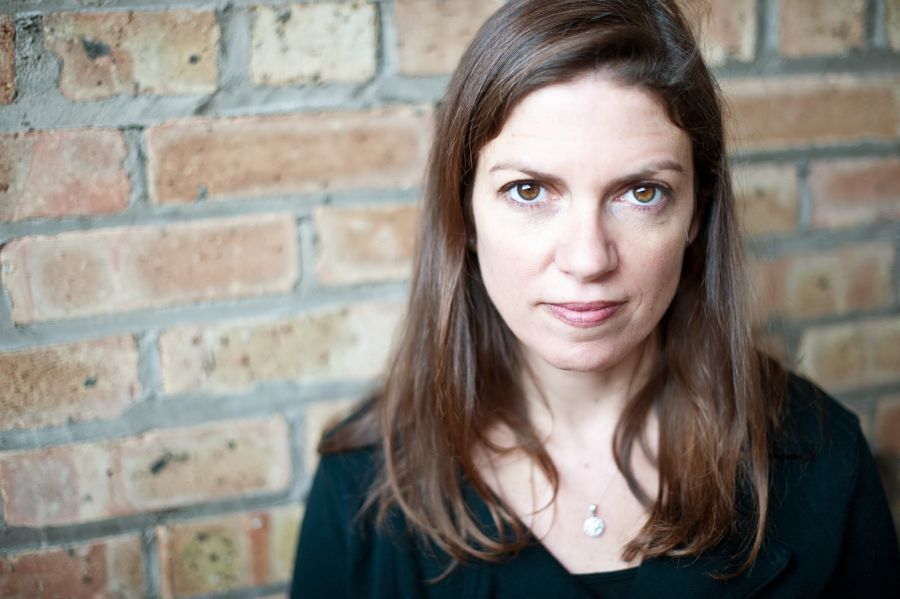When a 22-year-old Kimberly Senior arrived from at Steppenwolf Theatre Company with all of her belongings in the back of a car she’d driven from New Jersey, the staff looked at her somewhat incredulously. Her dad’s friend had contacted a friend of a friend who’d given money to the theatre, and Senior had been promised an “internship”—even though the theatre didn’t have a formal program at the time, and upon her arrival no one seemed to know who she was or what she was there for.
“For a long time, people were like, ‘Who is that girl? She just shows up every day,’” Senior recalls with a laugh. One of the first people she met at the theatre was Curt Columbus, now artistic director of Trinity Repertory Company, who advised Senior to stay in Chicago after her internship. More than two decades later, Columbus was one of the panelists on the Alan Schneider Director Award, which Senior receives today at the Theatre Communications Group national conference in Washington, D.C.
In that time, Senior has cemented her place in the Windy City and on the national theatre scene. Senior founded her own company, Collaboraction; worked at Steppenwolf in their Young Adults program and First Look Repertory of New Work; taught classes at DePaul and University of Chicago; established relationships with local companies like TimeLine, where she’s an associate artist, and Writers Theatre, where she’s a resident director; and began the “most singular, amazing, unique relationship” in her career, with playwright Ayad Akhtar. Senior and Akhtar began their work together on his play Disgraced at Chicago’s American Theatre Company in 2011, and Senior just directed her seventh production of the Pulitzer-winning play at Mark Taper Forum in Los Angeles, which runs June 8-July 17. (She also helmed the Broadway production.)
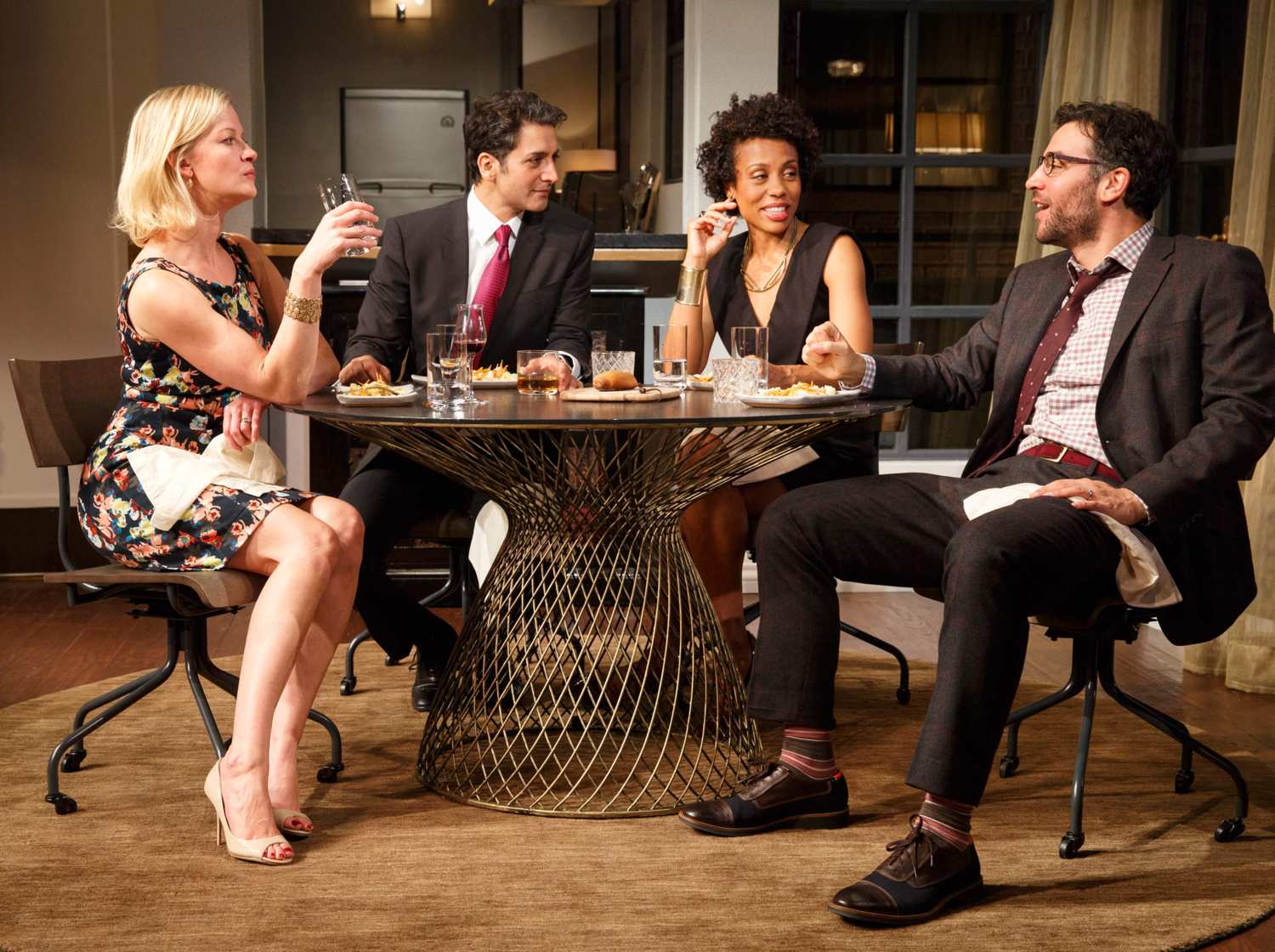
“I’m 43, and I’ve been directing 6 to 9 plays a year for 20 years,” Senior says, calling herself a “directing machine.” “I heard [director] Jack O’Brien speaking at this dinner at Lincoln Center, and he’s got to be like twice my age, and he has so much energy and he’s so dynamic and he’s talking about a project like it’s the first play he’s ever directed. And I had this moment that was not exactly relief, but like: I’m going to get to do this for a really long time, and I’m only at the beginning.”
American Theatre spoke with the director about her work thus far and to come.
You didn’t go to graduate school for directing, and you never assisted. How did you learn your craft and develop yourself as a director?
A lot of it is through my peers and through my community. The world around me became my graduate school. And it also continued with a value from my parents, where I realized that spending an afternoon at a museum is graduate school, that traveling is graduate school, that reading is graduate school. And the other branch of that is actually an institutional thing, where—and this can be super-challenging for freelance directors because of the economy and other things—you try to create sustained relationships with institutions and have theatres where you work time and again where you get to know their audiences, where you get to know the staff, where you create a community of artists where you’re pushing each other. From what I’ve heard, that’s what graduate school is.
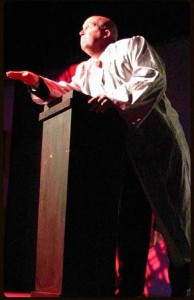
Was there ever a moment or a project for you where you felt like you’d “made it,” and what was that moment?
I know exactly what that was. I directed a play in 2001 called The Life and Times of Tulsa Lovechild [at Collaboraction] and it was my first big hit. It was the little play that could. It was a cast of 14, and in the play they travel more than 3,000 miles; there are 37 scenes. Everyone was like, “How are you going to do this on an $800 budget?” I found the play in the bottom of a drawer at Roadworks, where I had been a company member, and we were moving offices and I was like, “What’s this play?” For a million wonderful coincidences and the right group of people and the right moment, the play really exploded and did really well. That was when I got the attention of some other theatre companies that I had been interested in in Chicago, and was finally able to present myself with confidence to them as someone that they could hire to direct a play.
Did you get hired by another institution right after that?
Yes, really right then and there. That’s when I started working at Strawdog and TimeLine soon thereafter and a bunch of smaller companies in Chicago, which was so thrilling. Whenever I’m talking to young directors, I say to them, “You’re not auditioning. You’re not going in to get a job. You’re building a relationship and those relationships take years.” A theatre company is entrusting you with 25 percent of their yearly budget to make a play; you don’t just hand that to someone you just met.
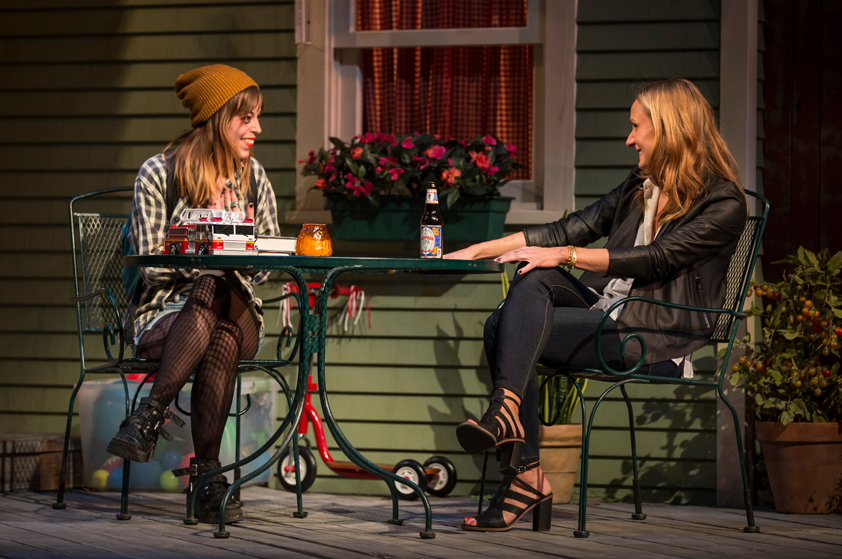
How did you and Ayad meet?
We were set up on a blind date—a theatre blind date. The Araca Group, which eventually produced the show on Broadway, discovered [Disgraced] in a very nascent stage. They had known P.J. Paparelli, the artistic director of American Theater Company, and P.J. had a slot and was like, “Totally, let’s get behind this. There’s a great Chicago director who’s been doing some great work with newer playwrights. We should get them together.” And I read the play, and I have never before or since been like, “I have to direct this play. If I don’t direct this play, my life will not be complete and I think this play’s life will not be complete.”
Why?
It spoke to me on every level. It spoke to me on a level of how I feel the conversation of American theatre wants to go. It asserted itself with confidence about not being a play that’s on the margins, even though it’s talking about something that I think people marginalize. It owned itself—like, “Yeah, I’m a mainstream American comedy/drama.” I wasn’t interested in the issues of identity politics and gender politics; I love seeing characters in that play, like the character of Jori, who is African-American and must be for the telling of that story, but it’s not a play about her being African-American. And that really moved me. Plus, it’s so bold! I thought, I have to know this guy. We must be bold. It scared me. So we get set up on a phone date, and Ayad says there was this moment where Kimberly basically jumped through the phone. Like two seconds into the call, I like wasn’t even trying to get the job; I was already working on the play.
You’ve directed the play for many different theatres. Do you direct it differently based on the audience?
Because the world keeps changing, because I keep changing, because elements of the production keep changing, it’s new every time. And yes, the audience keeps changing, but the conversation changes around the play rather than me going in and saying, “Who’s L.A.? What does L.A. want to talk about?” Because I don’t know, really. And now, honestly, with Trump, how we relate to that play has changed. I have to address that, because we’re meeting the play in our current moment.
Is it still exciting to come back to it?
I love it every minute of every day. I have a lot of friends who are now directing it all over the country in other places, and I love talking to them about it. I love that it’s a national conversation. I can’t believe the impact that this play can have, and it makes a ton of people really angry. At our opening night at Seattle Repertory Theatre, a guy got up after the violence and he faced the entire audience and he said, “I don’t know how any of you are sitting here through this. This is horrible.” And he stormed out of the theatre.
Were you in the theatre?
No, because I don’t sit for opening, but I was outside and I saw this guy storm out. And then after the play, he somehow found out I was the director and he comes up and he goes, “You’re the director? You’re really irresponsible.” I mean, he attacked me. And I said, “I’m so sorry that the play has caused you distress. You’re clearly upset. And you’re really entitled to feel that way. There’s a bigger conversation about what’s going on, and would encourage you to have it.” The theatre dies if everyone just applauds and goes, “Now where do we eat?” We’re not going to survive if we’re making those plays.
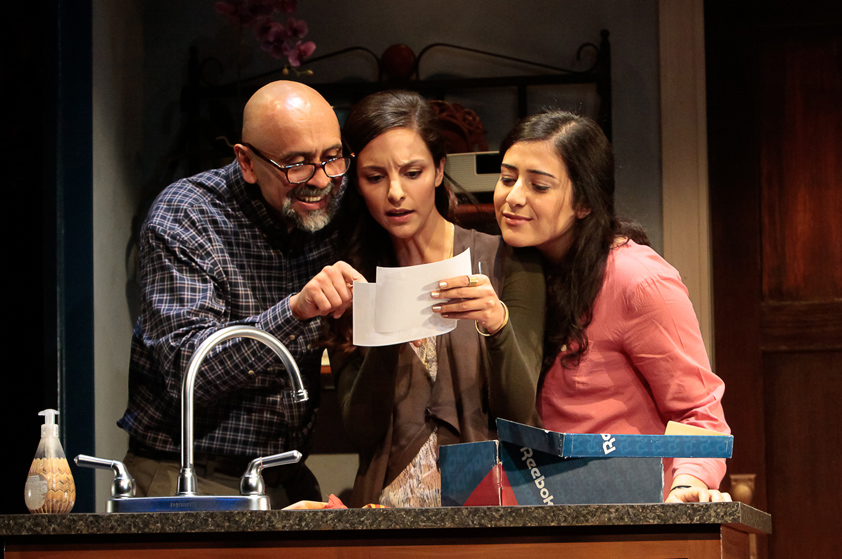
You work all over the country as a director. How do you find balance in your life?
In many ways, it’s the only life I’ve ever known. I joke that I’m a high-end carny. I have these boxes that I send from town to town, and I unpack my tent and my Ferris wheel and do my job. I’m really good at making a corporate apartment home in an hour. The hardest part is creating these sustained relationships with theatres, with audiences, and with staff. A lot of the work I’ve been trying to do is like, “Hey, I know I’m just here for one show right now, but I hope there’s another, not just because I want a job but because we’ll know each other better and we’ll be able to get to the heart of the matter more quickly.” How do you create something that’s deep and meaningful when you’re moving around so much? That’s one of the challenges, but the great joy is that you’re able to, in some weird way, connect all these different places. The world becomes a little smaller and we become a little more human.
Do your kids get to travel and see your work?
They do. It’s harder now that they’re becoming their own people. Of all of the thousands of people in my life that came to see Disgraced on Broadway, there was no person more proud of me than my son. He was like 8 at the time, and I was like, “It’s just not appropriate.” He really kept pushing me. He read the play. We talked about the play. And then he came to fight call, and Hari [Dhillon], who was playing Amir, showed him the mechanics of the violence and my son got to fake-punch Gretchen Mol. The theatre was empty when we were doing that, and it happened to be Gretchen’s birthday that day. So I took Noah with me to go get her some flowers. When we came back to theatre, the theatre was full of 780 people sitting in there. And we walk in—I’m not thinking anything of it—and he grabs my wrist and goes, “Mom! All of these people are here to see your play.” He was just so moved. But he also said to me, “Mom, this might be your first Broadway play but it’s not your last.”
Is there a type of work you’re most excited by right now?
It keeps changing. For me, my work is always something where there’s a question inside of the play that I haven’t answered for myself. And so through the act of making the work, I’m attempting to solve something. Now I think I’m in a transition. My work was very much about a gray area for a while; All My Sons was a good example of that. Like, good people do bad things sometimes, and what is that about and how do we make those decisions? Then it moved into a question of identity, and I did a lot of work about identity. I was wresting with my own identity—as a female artist, as a Jewish artist, as a mother artist—and trying to figure out what my role was in the world.
Now my work is driven by something that I think is advancing the conversation of our world. What’s the question we’re trying to solve out in the earth, and how can theatre be a vehicle in which we attempt to solve that? We live in a very fractured world, and I do think that theatre has a power to heal, because we sit in a room in the dark with strangers and encounter a story together. And then we laugh together and we cry together and hopefully afterward we talk together and are breaking down barriers and assumptions. So I want work that’s going to provoke that.

